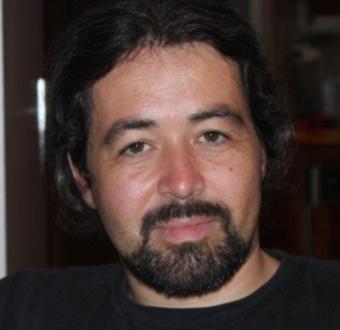
Frantz DEPAULIS
Researcher
Researcher
Biology
Physics
Molecular population genetics, data analyses, coalescent theory
CNRS
Department of Biology
Published on
22 September 2021
, updated on
10 January 2022
Image

Institut de biologie de l’ENS (IBENS)
6ème étage, bureau 608
46, rue d'Ulm 75230 Paris cedex 05
01 44 322344
I study molecular polymorphism of populations at the interplay between theory and data. I develop and apply statistical inference methods about evolutionary processes underlying molecular variation
Field of research
The methods of analyses that I develop or (and) apply rely primarily on the probabilistic theory of evolutionary coalescent trees. In particular, I use the benefit arising from time series data.
I ‘m interested in the impacts on molecular polymorphism of genetic exchange and evolutionary processes such as demography, population structure and natural selection.
The applications concern various organisms(drosophila, pearl millet, humans, ancient DNA from cave bear and aurochs…). For the last few years, I have been mainly focusing on viral evolution (HIV, HCV and SARS-CoV-2).
Publications
- Navascués M, Legrand D, Campagne C, Cariou ML, Depaulis F 2014. Distinguishing migration from isolation using genes with intragenic recombination: detecting introgression in the Drosophila simulans species complex. BMC Evolutionary Biology 14: 89.
- Chaillon A, Samleerat T, Zoveda F, Ballesteros S, Moreau A, Ngo-Giang-Huong N, Jourdain G, Gianella S, Lallemant M, Depaulis F, Barin F 2014. Estimating the Timing of Mother-to-Child Transmission of the Human Immunodeficiency Virus Type 1 Using a Viral Molecular Evolution Model. PLoS ONE 9: e90421.
- Enard D, Depaulis F, Roest Crolluis H 2010. Human and non-human primate genomes share hotspots of positive selection. PLoS Genet 6:e1000840.
- Depaulis F, Orlando L, Hanni C 2009. Using classical population genetics tools with heterochroneous data: time matters! PLoS One 4: e5541.
- Depaulis F, Mousset S, Veuille M 2003. Power of neutrality tests to detect bottlenecks and hitchhiking. J Mol Evol 57 Suppl 1:S190-200.
- Barton NH, Depaulis F, Etheridge AM 2002. Neutral evolution in spatially continuous populations. Theoretical Population Biology 61 :31-48.
- Depaulis F, Veuille M 1998. Neutrality tests based on the distribution of haplotypes under an infinite site model. Molecular Biology and Evolution 15 : 1788-1790.

